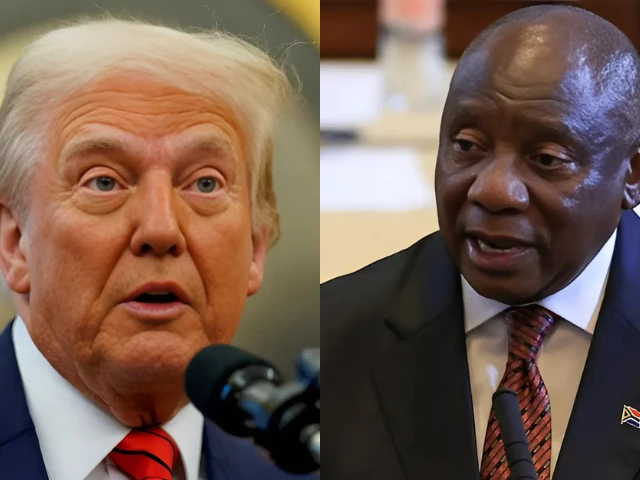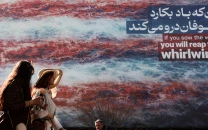South African groups reject Trump’s refugee offer, vow to stay in country
South African groups criticize Trump’s plan, defend land reform, and reject resettlement offer.

White community groups in South Africa have rejected US President Donald Trump’s offer to grant them refugee status and resettlement in the United States.
The plan, detailed in an executive order signed by Trump on February 9, halts US aid to South Africa in retaliation for what the Trump administration describes as “rights violations” against the country’s white citizens.
The order specifically addresses violent attacks on white Afrikaner farmers and the land expropriation law that allows the government to seize agricultural property from ethnic minority Afrikaners without compensation.
The South African government has vehemently denied allegations of systematic violence against white farmers, labeling Trump’s claims about the new land policy as misinformation.
In a statement, the South African Foreign Ministry blasted the US sanctions, calling the portrayal of Afrikaners as a persecuted group “ironic,” given that whites, who make up just 7% of the population, continue to hold significant economic privilege in the country.
Afrikaners, descendants of Dutch, French, and German settlers, speak Afrikaans and are distinct from other white South Africans of British or other European descent.
Despite Trump’s characterization of Afrikaners as facing oppression, local groups have dismissed the notion that they are vulnerable.
Afrikaner Leaders Reject Resettlement Offer
Two leading organizations representing Afrikaners – the trade union Solidarity and the lobby group AfriForum – both issued statements on Saturday rejecting the US offer. Dirk Hermann, CEO of Solidarity, which represents roughly 2 million people, said, "Our members work here, and they want to stay here, and they are going to stay here. We are committed to building a future here. We are not going anywhere." Kallie Kriel, the head of AfriForum, similarly affirmed, "We don’t want to move elsewhere."
Their resistance to the offer stands in stark contrast to Trump’s portrayal of Afrikaners as a group in urgent need of rescue from alleged mistreatment.
The Trump administration, claims the government of South Africa has been negligent in addressing anti-white violence and implementing policies that harm the white minority, such as land expropriation.
Local Perspectives: A Divided View
The South African government, led by President Cyril Ramaphosa, has strongly criticized the US sanctions, insisting that the country’s new policies are aimed at addressing the historical injustices of apartheid.
The government claims the land expropriation law is a necessary step to redress centuries of colonialism and the exclusion of Black South Africans from property ownership.
"South Africa is a constitutional democracy. We value all South Africans, Black and white. The assertion that Afrikaners face arbitrary deprivation and, therefore, need to flee the country of their birth is an assertion devoid of all truth," said a spokesperson for Ramaphosa.
Meanwhile, Sithabile Ngidi, a market trader in Johannesburg, expressed skepticism over Trump’s involvement, noting that she had not witnessed white South Africans being systematically targeted.
“He (Trump) should have actually come from America to South Africa to see what was happening for himself,” Ngidi said, criticizing Musk for offering his opinion without firsthand experience in the country.
Continued Economic Privilege of White South Africans
Despite claims of oppression, whites in South Africa still maintain significant economic advantages.
They own about 70% of the country’s private farmland, while only a small portion, approximately 1%, live in poverty.
A 2021 study by the South African Human Rights Commission revealed that 64% of Black South Africans live in poverty, underscoring the enduring economic inequality that remains a legacy of apartheid.
The issue of land redistribution, particularly the new expropriation law, remains contentious. Solidarity and AfriForum argue that the law unfairly targets white landowners, many of whom have worked the land for generations.
Additionally, they have voiced concerns over policies that promote the use of the Afrikaans language and affirmative action programs in business, which they argue discriminate against white South Africans.
A Campaign of misinformation?
The South African government has accused the Trump administration of being misinformed, criticizing the focus on Afrikaners while ignoring the struggles of other marginalized groups in both South Africa and the US.
It also called out what it described as a “campaign of misinformation and propaganda” surrounding South Africa’s policies, particularly the land reform issue.
As South Africa continues to grapple with the complicated legacy of apartheid and the challenges of achieving economic equity, the debate over land expropriation and affirmative action policies remains heated.
The US sanctions and Trump’s refugee offer, however, have further complicated the issue, with critics claiming that the American president’s actions ignore the broader context of South Africa’s ongoing efforts to address historical injustices.




















COMMENTS
Comments are moderated and generally will be posted if they are on-topic and not abusive.
For more information, please see our Comments FAQ